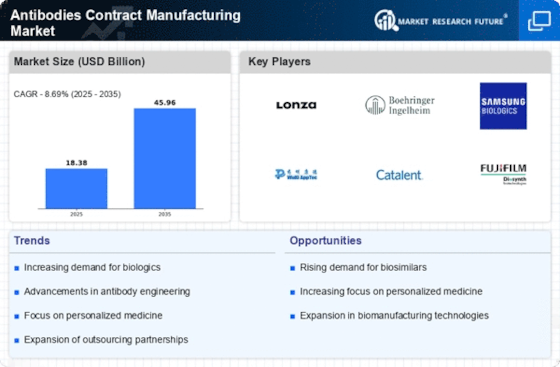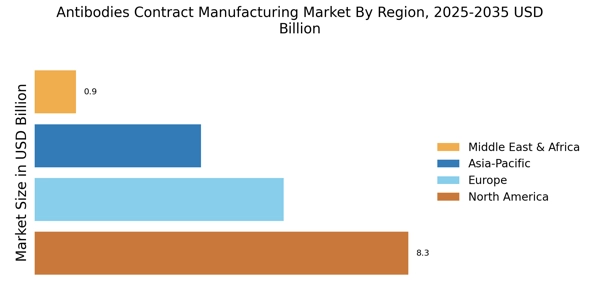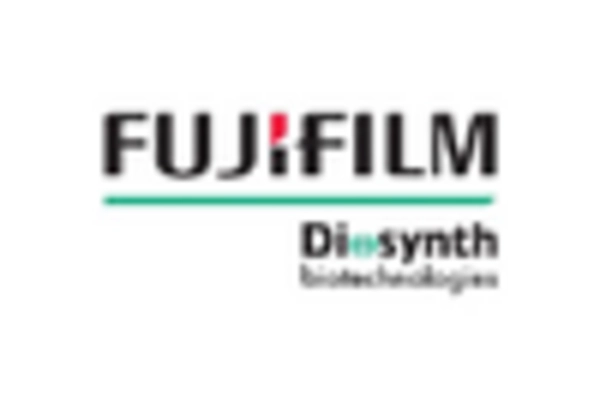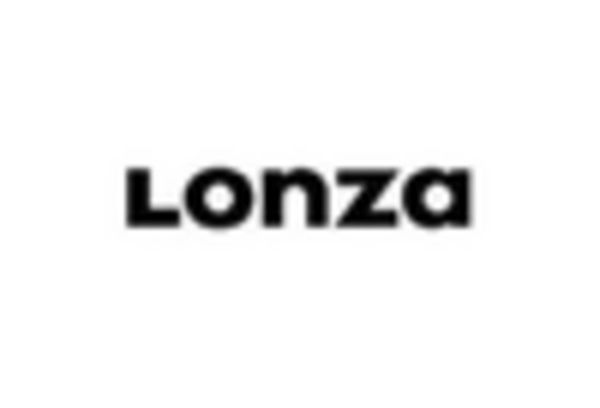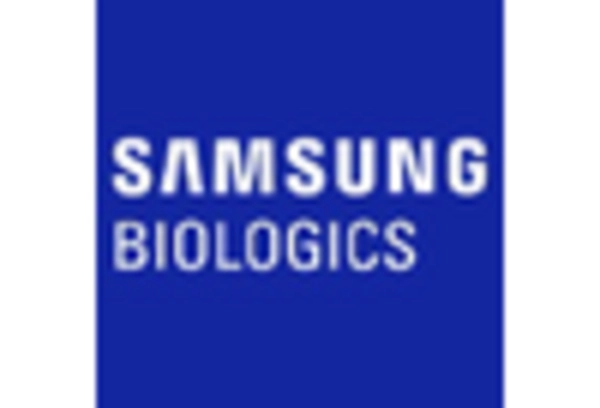Regulatory Support for Biologics
Regulatory bodies are increasingly supportive of biologics, which is positively impacting the Antibodies Contract Manufacturing Market. Initiatives aimed at streamlining the approval process for antibody-based therapies are emerging, encouraging more companies to invest in this area. For instance, the introduction of expedited pathways for biologics has led to a surge in the number of approved monoclonal antibodies. This regulatory environment fosters innovation and encourages contract manufacturers to enhance their capabilities to meet the growing demand for compliant and efficient production processes. As a result, the market is likely to witness a robust growth trajectory in the coming years.
Expansion of Biopharmaceutical Sector
The biopharmaceutical sector is experiencing rapid expansion, which significantly influences the Antibodies Contract Manufacturing Market. With a growing number of biopharmaceutical companies entering the market, there is an increasing need for specialized manufacturing services. This sector is expected to grow at a compound annual growth rate (CAGR) of around 8% over the next few years. As these companies focus on developing innovative therapies, they often seek contract manufacturers to leverage their expertise in antibody production. This trend not only alleviates the burden on in-house manufacturing capabilities but also enhances the overall efficiency and speed of bringing new therapies to market.
Growing Demand for Personalized Medicine
The shift towards personalized medicine is a transformative trend influencing the Antibodies Contract Manufacturing Market. As healthcare providers increasingly recognize the value of tailored therapies, the demand for monoclonal antibodies that target specific patient populations is on the rise. This trend is expected to drive the market for contract manufacturing services, as companies seek to develop and produce customized antibody therapies. The market for personalized medicine is projected to grow significantly, with estimates suggesting it could reach USD 100 billion by 2026. This growth presents a substantial opportunity for contract manufacturers to expand their service offerings and cater to the evolving needs of the biopharmaceutical industry.
Increasing Prevalence of Chronic Diseases
The rising incidence of chronic diseases such as cancer, autoimmune disorders, and infectious diseases is a primary driver for the Antibodies Contract Manufacturing Market. As healthcare systems strive to address these challenges, the demand for therapeutic antibodies has surged. According to recent estimates, the market for monoclonal antibodies is projected to reach approximately USD 300 billion by 2025. This growth is largely attributed to the increasing reliance on antibody-based therapies, which are often more effective and targeted than traditional treatments. Consequently, contract manufacturers are positioned to play a crucial role in meeting this escalating demand, providing the necessary expertise and resources to develop and produce these complex biologics.
Rising Investment in Research and Development
Investment in research and development (R&D) within the pharmaceutical and biotechnology sectors is a significant driver for the Antibodies Contract Manufacturing Market. Companies are increasingly allocating substantial resources to R&D to discover and develop novel antibody-based therapies. In 2025, it is anticipated that R&D spending in the biopharmaceutical sector will exceed USD 200 billion. This influx of funding is likely to stimulate demand for contract manufacturing services, as firms seek to outsource production to specialized providers. By doing so, they can focus on their core competencies while ensuring high-quality manufacturing processes that comply with regulatory standards.


